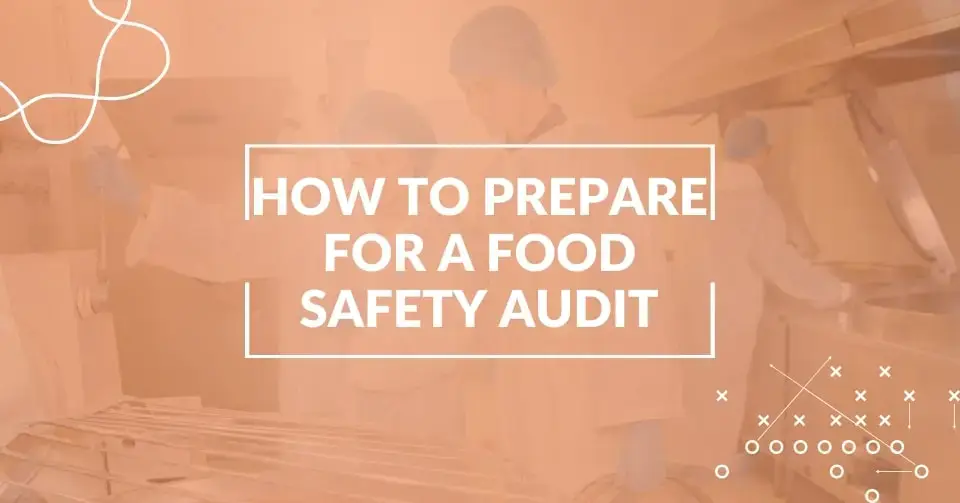Why is a HACCP Necessary for GFSI Certification?
A HACCP plan is always necessary for GFSI certification, as GFSI requires that all certified sites have a Hazard Analysis Critical Control Point (HACCP) system in place. This ensures safety and quality of the food produced by these certified sites. While having a HACCP plan may not be enough to get you GFSI certification, it is an important first step.
What Does a HACCP Plan Cover?
A well-crafted and effective HACCP plan is the backbone of every successful food safety system. The HACCP plan is where food safety hazards are identified, controlled, and corrected. A HACCP plan involves every step of food processing from acceptance of your ingredients to delivery of the final product.
If writing your own HACCP seems like too big of a challenge, you can hire FoodReady and let our team of food safety experts write your HACCP plan. We also have a GFSI consultant, a SQF consultant, and a BRC consultant.
Click here to book a demo of FoodReady’s software and find out what our software and food safety consulting team can do for you.
Which is Preferred, a HACCP Plan or GFSI Certification?
GFSI certification is generally preferred over HACCP, as it offers a higher level of assurance that the food being produced at a facility meets international standards for safety and quality. While having a GFSI certification is one of the highest levels of food safety standards, HACCP is the core of your GFSI food safety system.
Virtually every prepared or processed food that the public has purchased (depending on your State laws) to eat from a food truck to packaged food made by a large manufacturer uses a HACCP plan. It also helps with brand recognition and consumer confidence in products from the site due to its rigorous requirements.
How Long Does it Take a Facility to Get GFSI Certified?
The amount of time needed to get GFSI certified depends on a variety of factors, such as the type of product being produced and whether or not the facility already has a HACCP plan in place.
A newer, more modern facility built with food processing in mind will undoubtedly take less time to obtain GFSI certification than an older retrofitted facility. You must keep this in mind when you are scheduling a GFSI type audit like SQF or BRC.
In general, it can take anywhere from 3 to 12 months to complete the process. However, with GFSI consulting services available like FoodReady, companies are able to streamline the process and reduce this time frame significantly.
FoodReady software has all the features necessary to prepare for and pass a GFSI benchmarked type audit. FoodReady has a drag-and-drop HACCP builder and capability to keep any associated documents including time and temperature logs, recall management and traceability, document management, checklist builder, batch and lot management, ingredient management, etc.
Accelerate Your Path to GFSI Certification
From SOPs to site plans, FoodReady gives you all the tools to prep for SQF, BRC, or FSSC audits.
Besides Having a HACCP Plan are There Other Requirements for GFSI?
In addition to having a HACCP plan in place for GFSI certification, there is also other documentation required like Site Master Plans, Risk Analysis documents, traceability systems and more. All these pieces must work together in order to prove that the site meets all GFSI standards of safety and quality. The GFSI checklist is very long and for assistance in fulfilling these requirements, many companies choose to utilize GFSI consulting services like FoodReady food safety consulting and software.
In addition to a HACCP plan, there are several other requirements that must be met when pursuing GFSI certification. These include Good Manufacturing Practices (GMPs), documenting a Food Safety System, conducting supplier audits and carrying out internal tests or assessments.
Are GMPs Also Included in GFSI?
The GMPs contain the basic hygiene and operational prerequisites of a food safety management system. This includes how employees should handle the food, cleanliness of surfaces that come into contact with food, training and certification procedures for staff, pest control measures and much more.
In addition to GMPs, organizations must document a Food Safety System that meets GFSI guidelines. This system is based on the HACCP plan and should include how the manufacturer plans to implement food safety procedures, determine when corrective action needs to be taken, verify that all processes are compliant with quality standards and more.
Do You Need to Prequalify Suppliers for GFSI?
Organizations must also pre-qualify suppliers in order to ensure that their ingredients meet GFSI requirements. Finally, manufacturers must carry out internal tests or assessments regularly to ensure food safety policies are being followed and any corrective action needed is taken.
In order to receive GFSI certification, an organization must meet all these requirements in addition to having a HACCP plan in place. Once the organization proves that they have met the necessary criteria, they will be granted GFSI certification. This certification is an important step for any food business, as it shows customers and other stakeholders that they have a rigorous system in place to ensure the safety of their products.
Having a HACCP plan is necessary for GFSI certification and it helps ensure the safety and quality of food produced at certified sites. While GFSI certification can take some time to complete, companies can use GFSI consulting services to speed up the process and help make sure all requirements are met. With these services, companies can gain access to the advantages of gaining a valuable GFSI certification that sets them apart from their competitors.
FAQs
GFSI recognizes SQF (Safe Quality Food), BRC (British Retail Consortium), and FSSC 22000.
No, ISO is not recognized by GFSI as a benchmarked standard, however FSSC 22000 is very similar and is recognized by GFSI.
The Global Food Safety Initiative (GFSI) is a product of the The Consumer Goods Forum (CGF), which is composed of 45 retailers and manufacturers from across the globe. GFSI is recognized in the United States to be the top non-governmental food safety certification for food processors.
GFSI has approved several food safety certifications to be their “benchmarked standards”. These benchmarked standards such as Safe Quality Food (SQF), British Royal Consortium (BRC) and FSSC 22000 are thorough food safety and quality food safety programs that when implemented correctly ensure safe, quality food for consumers.







